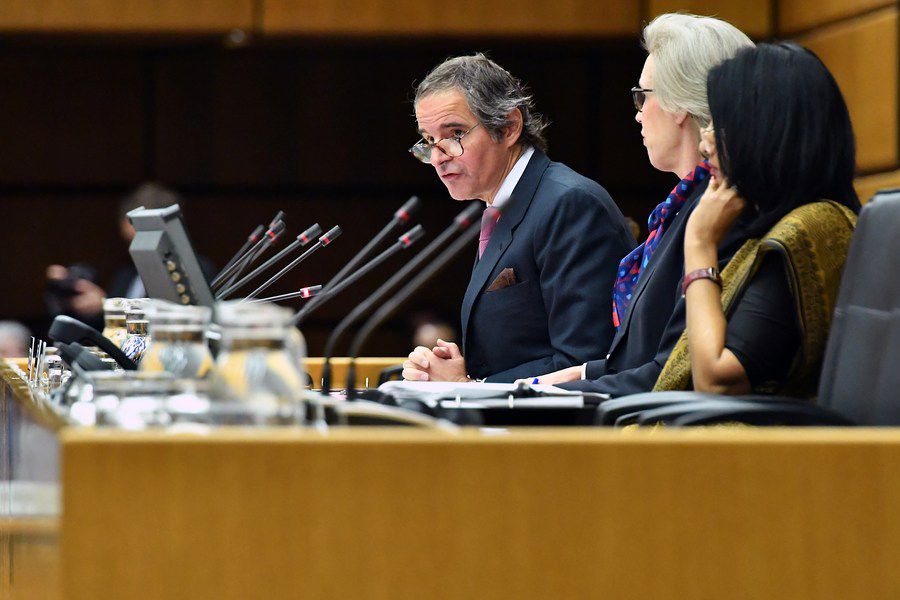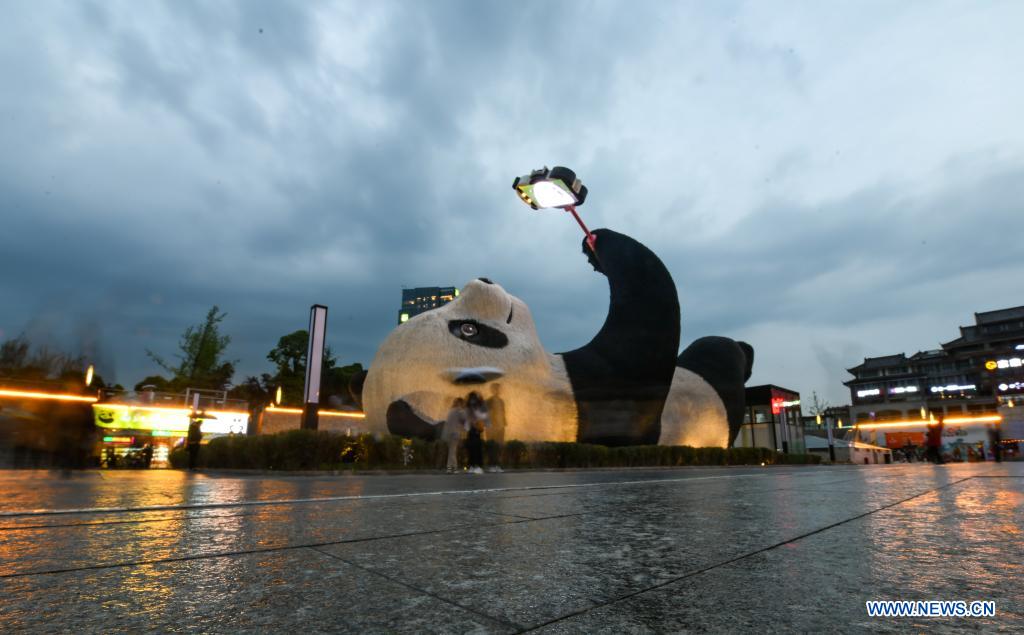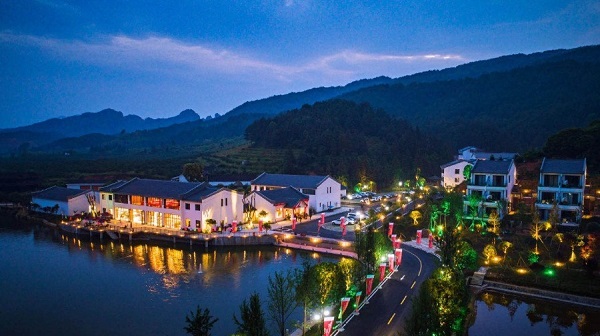IAEA chief urges transparency as Japan's decision on nuclear wastewater sparks int'l backlash

People rally to protest against the Japanese government's decision to discharge contaminated radioactive wastewater in Fukushima Prefecture into the sea, in Tokyo, capital of Japan, April 13, 2021. (Xinhua/Du Xiaoyi)
IAEA chief called for "transparency" in dealing with global concerns over Japan's nuclear wastewater disposal plan. "What we need to do is to make sure that when this starts to be released, there will be no harm to the environment, no harm whatsoever," he said.
VIENNA, April 14 (Xinhua) -- As Japan's decision to discharge nuclear wastewater into the Pacific Ocean sparked an international backlash, the International Atomic Energy Agency (IAEA) chief said Wednesday that he took these concerns "seriously" and called for "transparency."
"The way to deal with these concerns, for me ... it's very simple. It has one name: transparency," Rafael Mariano Grossi, director general of the IAEA, told Xinhua in an interview here on Wednesday.
Grossi stressed that when the wastewater is released, it should cause no harm to the environment.
Japanese Prime Minister Yoshihide Suga said on Tuesday that his government has decided to discharge contaminated radioactive wastewater in Fukushima Prefecture into the Pacific Ocean amid domestic and international opposition.
On Wednesday, China strongly urged Japan to reconsider its decision on the disposal of nuclear waste. The international community including the Republic of Korea (ROK), Russia and the European Commission had expressed deep concerns over the issue.

Rafael Mariano Grossi, director general of the International Atomic Energy Agency (IAEA), speaks at the board of governors meeting in Vienna, Austria, March 9, 2020. (Xinhua/Photo Credit: Dean Calma / IAEA)
Grossi noted that not only Japan's neighboring countries but also local people in Japan, such as fishermen, were "all very concerned."
"The issue at hand is very well known. We all know what is there. We all know the amount of the water. What we need to do is to make sure that when this starts to be released, there will be no harm to the environment, no harm whatsoever," he said.
Grossi noted that the IAEA would cooperate with Japan, with professional work organized "before, during and after the controlled release of treated water into the ocean. "
"So the work will start now and we will have to make sure that every step of the way ... we observe this cooperation, that this cooperation is unhindered, that we have access to everything we need to have access (to)," he said.

File photo taken on Oct. 12, 2017 shows huge tanks that store contaminated radioactive wastewater in Fukushima Daiichi nuclear plant, in Fukushima Prefecture, Japan. (Xinhua)
Photos
Related Stories
- Over 78 pct of netizens oppose Japan's decision to dump radioactive water into sea: survey
- China urges U.S. to treat Japan's disposal of contaminated Fukushima water according to facts
- Japan’s ‘low credibility’ causes concerns among Asian countries on Fukushima nuclear wastewater release
- Japan's decision to dump Fukushima water into sea sparks domestic, int'l opposition
- Strong opposition, serious concerns raised as Japan decides to dump Fukushima contaminated water into sea
Copyright © 2021 People's Daily Online. All Rights Reserved.










